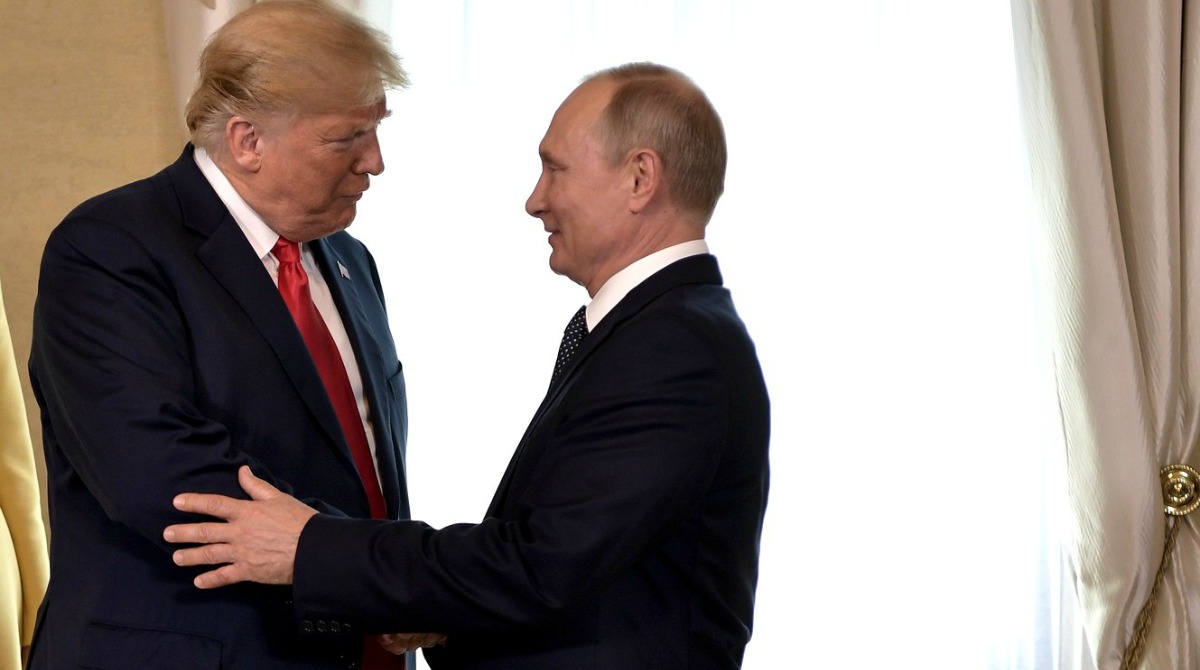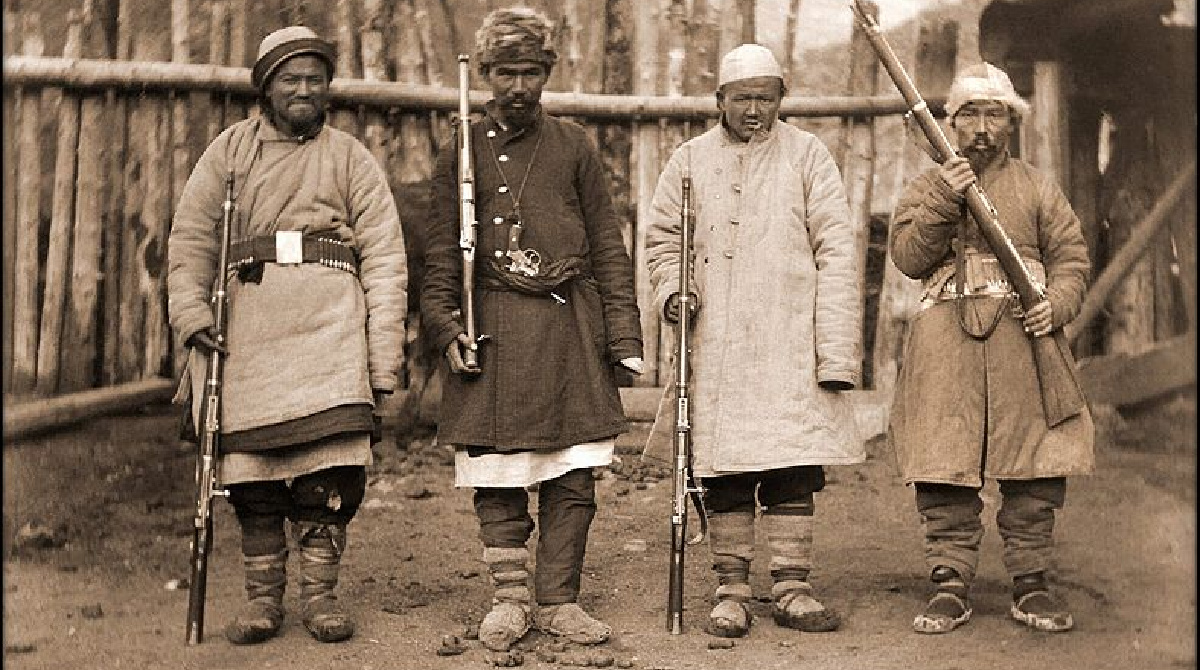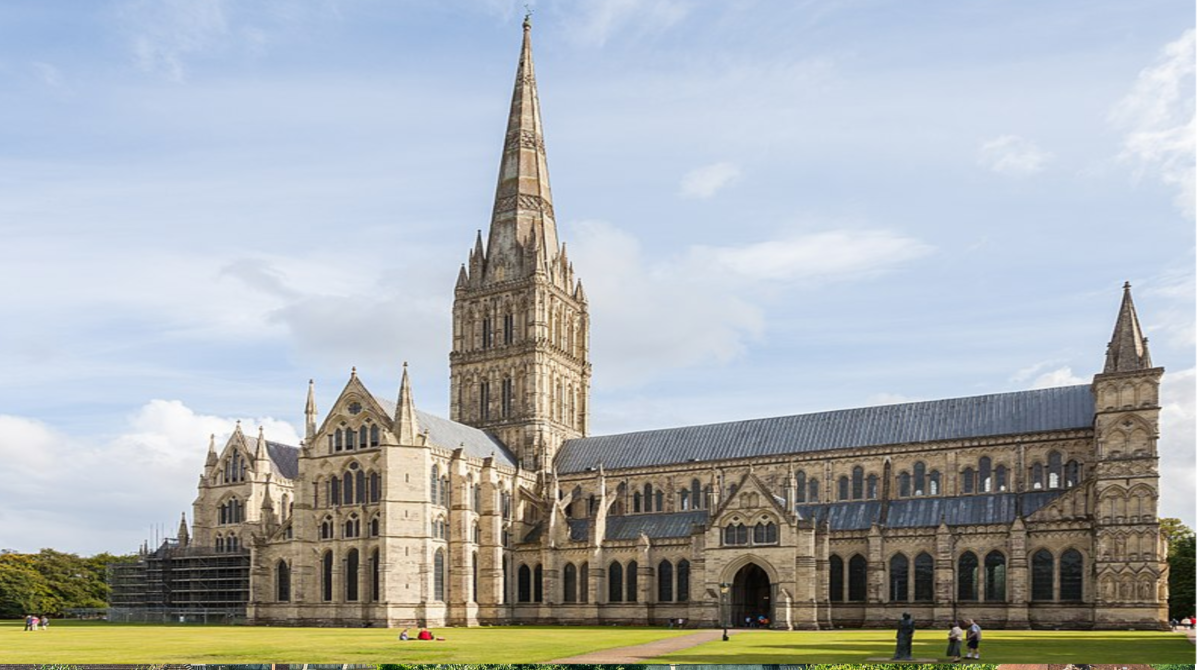The hysteria over Helsinki and the real threat to the free world
The behaviour of President Donald Trump following his meeting with Russia’s President Putin in Helsinki, and the reaction to what he said, illustrate two things: first, the flaws in Trump’s personality; and second the ever-more hysterical and misleading reaction and double standards (Obama’s “Russia reset”, anyone?) by a media and political class which views absolutely everything Trump says or does through a distorting prism of pure malice.
The near-universal media story following the Helsinki press conference (echoed by Democrats and even some Republicans) was that Trump had kow-towed to Putin by accepting his assertion that Russia had not interfered in the 2016 US presidential election. As a result, it has been almost universally agreed that – just as was suspected – Trump has shown he is in Putin’s pocket, that he grovelled to a tyrant who poses a terrible threat to the west, and that as a result Trump is (according to some) guilty of treason, with what he said being compared to the Japanese attack on Pearl Harbour and the Nazi pogrom against the Jews on Krystallnacht (yes, really).
In assessing what actually went on at Helsinki, everyone would be well advised to read the transcript of that press conference here. This gives a rather different impression from the media story about it. From this transcript, a fair-minded person would surely observe three things that stand out: Trump’s appalling carelessness with language in his often incoherent remarks; his obsession with showing there was no collusion between his election campaign and Putin’s Russia and that he won the presidency through his efforts alone; and last but definitely not least, what Putin said about issues that are rather more important for the world.
Contrary to the media’s claims, Trump never actually answered the repeated questions about alleged Russian interference in the presidential campaign. Instead he was intent only upon maintaining that there was no collusion between his own campaign and Russia, and that Russia played no part in affecting the outcome of the election which he he won through his own efforts alone.
Here are the relevant passages.
“REPORTER, JEFF MASON, REUTERS: Thank you. Mr. President, you tweeted this morning that it’s U.S. foolishness, stupidity, and the Mueller probe that is responsible for the decline in U.S. relations with Russia. Do you hold Russia at all accountable or anything in particular? And if so, what would you what would you consider them that they are responsible for?
TRUMP: Yes I do. I hold both countries responsible. I think that the United States has been foolish. I think we’ve all been foolish. We should have had this dialogue a long time ago, a long time frankly before I got to office. And I think we’re all to blame.
I think that the United States now has stepped forward, along with Russia, and we’re getting together and we have a chance to do some great things, whether it’s nuclear proliferation in terms of stopping, have to do it, ultimately that’s probably the most important thing that we can be working on.
But I do feel that we have both made some mistakes. I think that the probe is a disaster for our country. I think it’s kept us apart, it’s kept us separated. There was no collusion at all. Everybody knows it. People are being brought out to the fore. So far that I know virtually none of it related to the campaign. And they’re gonna have to try really hard to find somebody that did relate to the campaign. That was a clean campaign. I beat Hillary Clinton easily and frankly we beat her.
And I’m not even saying from the standpoint…we won that race. And it’s a shame that there can even be a little bit of a cloud over it. People know that. People understand it. But the main thing and we discussed this also is zero collusion and it has had a negative impact upon the relationship of the two largest nuclear powers in the world.We have 90 percent of nuclear power between the two countries. It’s ridiculous. It’s ridiculous what’s going on with the probe.
REPORTER: For President Putin, if I could follow up as well. Why should Americans and why should President Trump believe your statement that Russia did not intervene in the 2016 election, given the evidence that U.S. intelligence agencies have provided? And will you consider extraditing the 12 Russian officials that were indicted last week by a U.S. grand jury?
TRUMP: Well, I’m going to let the president answer the second part of that question. But, as you know, the whole concept of that came up perhaps a little bit before but it came out as a reason why the Democrats lost an election, which frankly, they should have been able to win because the electoral college is much more advantageous for Democrats, as you know, than it is to Republicans. We won the Electoral College by a lot. 306 to 223, I believe.
And that was a well fought, that was a well fought battle. We did a great job. And frankly, I’m going to let the president speak to the second part of your question. But just to say it one time again and I say it all the time, there was no collusion. I didn’t know the president. There was nobody to collude with. There was no collusion with the campaign and every time you hear all of these you know 12 and 14 – stuff that has nothing to do and frankly they admit – these are not people involved in the campaign.
But to the average reader out there, they’re saying well maybe that does. It doesn’t. And even the people involved, some perhaps told mis-stories or in one case the FBI said there was no lie. There was no lie. Somebody else said there was. We ran a brilliant campaign and that’s why I’m president. Thank you.”
So Trump said there was no collusion with Putin. Putin said there was no collusion with Trump. Trump has been saying this day in, day out. So nothing new here at all, and the fact that Putin said the same thing does not make it any more notable.
The same question of Russian interference was put again. And again, neither Trump nor Putin answered it directly but focused on one particular aspect –this time the claim that Russia was behind the hacking of the Democratic National Committee. Here’s the relevant section:
REPORTER, AP: President Trump, you first. Just now, President Putin denied having anything to do with the election interference in 2016. Every U.S. intelligence agency has concluded that Russia did. My first question for you sir is, who do you believe? My second question is would you now, with the whole world watching, tell President Putin, would you denounce what happened in 2016 and would you warn him to never do it again?
TRUMP: So let me just say that we have two thoughts. You have groups that are wondering why the FBI never took the server. Why haven’t they taken the server? Why was the FBI told to leave the office of the Democratic National Committee?
I’ve been wondering that. I’ve been asking that for months and months and I’ve been tweeting it out and calling it out on social media. Where is the server? I want to know where is the server and what is the server saying?
With that being said, all I can do is ask the question.My people came to me, Dan Coates, came to me and some others they said they think it’s Russia. I have President Putin. He just said it’s not Russia.
I will say this: I don’t see any reason why it would be. But I really do want to see the server but I have, I have confidence in both parties.I really believe that this will probably go on for a while but I don’t think it can go on without finding out what happened to the server. What happened to the servers of the Pakistani gentleman that worked on the DNC?
Where are those servers? They’re missing. Where are they? What happened to Hillary Clinton’s emails? 33,000 emails gone, just gone. I think in Russia they wouldn’t be gone so easily. I think it’s a disgrace that we can’t get Hillary Clinton’s thirty three thousand e-mails.
I have great confidence in my intelligence people but I will tell you that President Putin was extremely strong and powerful in his denial today and what he did is an incredible offer. He offered to have the people working on the case come and work with their investigators, with respect to the 12 people. I think that’s an incredible offer. Ok? Thank you.
PUTIN: I’d like to add something to this. After all, I was an intelligence officer myself and I do know how dossiers are made up. Just a second. That’s the first thing. Now the second thing. I believe that Russia is a democratic state and I hope you’re not denying this right to your own country. You’re not denying that United States is a democracy. Do you believe the United States is a democracy?
And if so, if it is a democratic state, then the final conclusion and this kind of dispute can only be delivered by a trial, by the court, not by the executive, by the law enforcement.”
So they were both talking only about the specific issue of Russia having hacked the DNC computers. That was what Trump said he had no reason to believe.
Here’s where Trump made a mistake. He said he didn’t see any reason why it would be Russia that hacked the DNC computers. But under pressure, he subsequently claimed that he had mis-spoken and what he had intended to say was that he didn’t see any reason why it wouldn’t be Russia.
This “clarification” – which reversed the meaning of the phrase – was just silly and unbelievable and thus merely made things worse for himself. Nevertheless, in the context of a discussion specifically about the hacking of the DNC computers and his own repeated call for the servers to be produced as evidence of what actually took place here, does it really matter whether he said “would” or “wouldn’t”?
He spoke loosely and carelessly. That’s bad. But it seems pretty obvious that he did so because he was so wrapped up in the belief that the “deep state” is relentlessly pursuing him over false claims of his collusion with Russia, while the same “deep state” is failing even to examine the DNC’s server to get to the bottom of just who hacked into its computer and why.
They key point is this. The allegation is that Helsinki showed that Trump is in Putin’s pocket. Yet at that press conference, Putin himself said this:
“As to who is to be believed and to who is not to be believed, you can trust no one, if you take this. Where did you get this idea that President Trump trusts me or I trust him? He defends the interests of the United States of America, and I do defend the interests of the Russian Federation.We do have interests that are common. We are looking for points of contact. There are issues where our postures diverge, and we are looking for ways to reconcile our differences; how to make our effort more meaningful.”
In addition, Putin revealed that in their four hour meeting far from Trump accepting Russia’s invasion of Crimea, as many had feared he might do, he had done the opposite:
“PUTIN: (chuckles) President Trump and – well, the posture of President Trump on Crimea is well known and he stands firmly by it, he continue to maintain that it was illegal to annex it. We – our viewpoint is different. We held a referendum in strict compliance with the UN Charter and the international legislation.”
Here’s what I think all this signifies. This was not the behaviour of someone in Putin’s pocket. This was Trump behaving like a big beast of the jungle meeting another big beast. He needs to get the better of Putin and he believes he can, but he takes him seriously because Putin is a powerful rival.
Just as he did with Kim Jong-un, another formidably dangerous foe, he therefore flatters him in public as a kind of feint in order to cement what he’s doing behind the scenes in making him an offer he can’t refuse. It’s a negotiating strategy.
That also explains the difference between the way he approaches Putin or Kim Jong-un and the way he treats the EU, Angela Merkel and Theresa May. He holds the EU and Merkel in contempt as weak and relatively powerless; there’s little if anything he wants from the EU, except for them to pay more towards their own defence. He does, though, want a good deal with the UK; hence the way he tempered his criticism of Mrs May’s catastrophic Brexit negotiating strategy with more emollient language, in order to convey his message that he wanted to deal with an independent Britain and not with an EU proxy.
Trump’s personality flaws – his self-obsession, his lack of attention span, his thin skin against criticism, his inability to speak carefully and accurately – are plain for all to see. The crucial point, however, is not what Trump says, nor the content of his character, but what he does and what he achieves.
And here’s what Putin said that was potentially so significant. For his remarks suggested that he would support Trump’s attempts to defang both Iran and North Korea. If Trump turns out to have succeeded in detaching Russia from Iran over Syria and from China over North Korea, that would be a huge step towards defeating two of the most evil and dangerous regimes in the world.
Seen in this light, the reaction of the media and political class to the Helsinki press conference was not just hysterical and disproportionate and a display of near-pathological hatred towards Donald Trump, but a malevolent undermining of the most promising attempt for years to tackle some of the major threats to the peace and security of the world.




